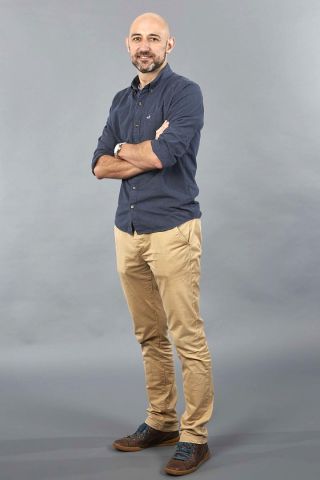ARMI announces quail facility to study skeletal muscle regeneration
In June 2016, Dr Olivier Serralbo received ARMI’s first shipment of quails – the start of a yearlong process to build the Monash Transgenic Quail Facility (MTQF) at ARMI, a significant step in fast-tracking our understanding of skeletal muscle regeneration.
This work has been a while in the making – Dr Serralbo and Professor Marcelle have been working together since 2004 to understand the development of skeletal muscles and skeletal muscle regeneration. One way they do this is by studying bird and mouse embryos during the first few days of development.
Why Quails?

Bird models are better than mice in some situations. First birds have some useful genetic and tissue links with humans. The skeletal muscle system of birds is close to humans, making it particularly useful for research into skeletal muscle regeneration. Second, because the embryo develops in a shell, bird models give better access to the embryo than other mammal models.
Researchers can collect and store the eggs at 14 degrees for up to one week before starting the incubation process. Researchers can then open the egg to manipulate the embryo, re-seal the egg and then continue incubation. In mice, manipulating embryos would be a difficult procedure requiring surgery that is riskier for the animals.
“One of the advantages we have is quails grow much faster than chickens, and this makes quails a good avian model for genetics studies and a pilot experimental model for the poultry industry.” Said Dr Serralbo.
Genetic manipulation of birds is a relatively recent development compared with widely used mice and other mammals. Although the use of chickens is growing, transgenic quails are a faster and more effective alternative to transgenic chickens, with which they share a 96% genetic similarity.
“Genetic manipulation is faster and cheaper in quails because each female produce one egg per day, plus they reach sexual maturity in six weeks rather than the six months.” He said.
A collaboration between ARMI, Monash University and AAHL CSIRO Geelong, the Monash Transgenic Quail Facility (MTQF) facility is the first transgenic quail facility in the world and the first to apply the powerful gene-editing technology (CRISPR) to quails.
The MTQF is unique because it will commercialise transgenic quails to provide disease and experimental models for researchers. Genetically manipulated quails can also be used for cellular modelling, live imaging and cell tracking.
For more information on the MTQF: http://www.monash.edu/research/infrastructure/platforms-pages/transgenic-quail
